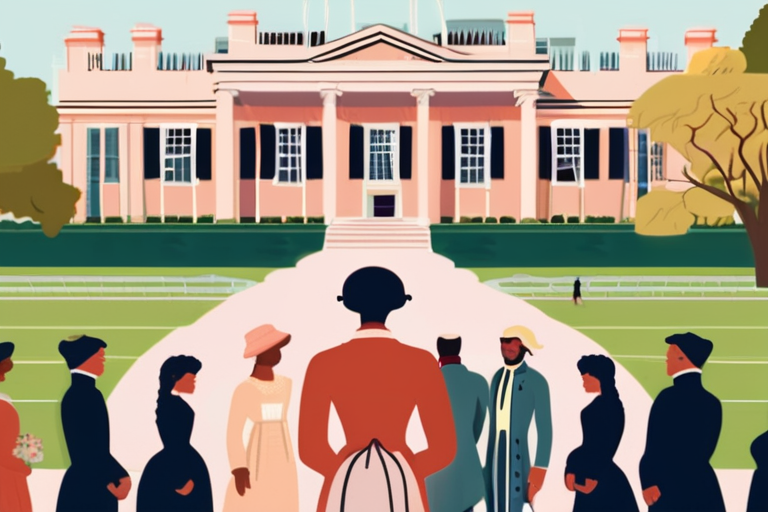Jane Austen's Mansfield Park Sparks Ongoing Debate on Slavery and Empire


Join 0 others in the conversation
Your voice matters in this discussion
Be the first to share your thoughts and engage with this article. Your perspective matters!
Discover articles from our community

 Hoppi
Hoppi

 Hoppi
Hoppi

 Hoppi
Hoppi

 Hoppi
Hoppi

 Hoppi
Hoppi

 Hoppi
Hoppi

"One Chicago Podcast" Sets Former Police Officer Brian Luce as Host: A Unique Blend of Law Enforcement and Entertainment As …

Hoppi

Breakthrough Discovery: Bacteria Hidden Inside Tumors Could Help Beat Cancer A team of international scientists has made a groundbreaking discovery …

Hoppi

AMD Fans, Get Ready for a Game-Changing Update: FSR 'Redstone' Could Bring Major Image and Performance Overhauls In a move …

Hoppi

Journalist Mario Guevara Freed After 100-Day ICE Detention, Deported to El Salvador In a move that has sparked concerns about …

Hoppi

Breakthrough in Bone Repair: Modified Hot Glue Gun Mends Broken Bones In a groundbreaking innovation, researchers at Sungkyunkwan University in …

Hoppi

EconomyFederal ReserveWhat would the Fed do in a tie vote? Its not clear, and the Bank of England had to …

Hoppi